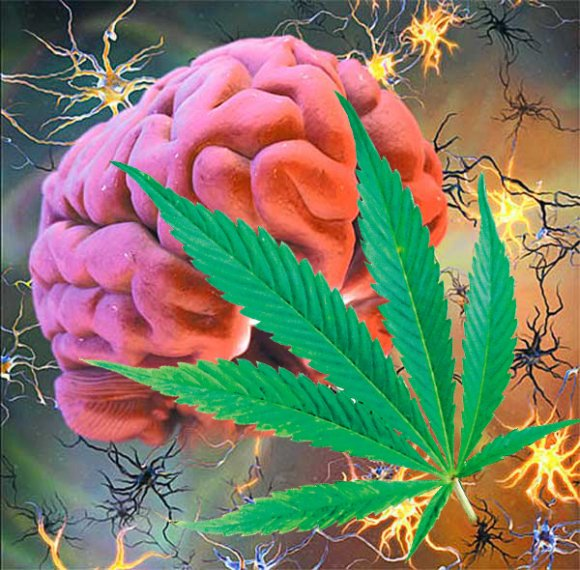13 Ways Marijuana Affects the Human Body and Brain
Recent elections in the United States, where four more states legalized marijuana, left many people puzzled: why legalize a drug? Many sincerely believe marijuana is a narcotic and suspect the worst consequences from its use. So, how does smoking marijuana affect a person?
Marijuana Can Cause Pleasure
One of the active components of marijuana, tetrahydrocannabinol (THC), affects the brain’s reward system, making the user feel pleasure similar to what they experience from other enjoyable things like food or sex. With excessive exposure, this reward system produces a feeling of euphoria (“high”). According to many studies, overuse can lead to problems for some people. The more often you trigger euphoria, the harder it becomes to enjoy other things.
A Common Symptom Is Increased Heart Rate
Within minutes of smoking marijuana, your heart rate can increase by 20-30 beats per minute. This effect can last from 20 minutes up to 3 hours, according to the National Institute on Drug Abuse (NIDA).
Cannabis May Relieve Certain Types of Pain…
Marijuana also produces cannabidiol (CBD), a chemical that doesn’t cause a high but appears responsible for many of marijuana’s therapeutic effects, from pain relief to treating some forms of childhood epilepsy. However, while marijuana users often report relief from various symptoms, little has been studied in clinical settings since marijuana remains illegal in most of the world.
…Such as Arthritis Pain…
Some small studies have shown marijuana can be helpful for certain conditions. One pain-relief mechanism is reducing inflammation, which accompanies many painful conditions like rheumatoid arthritis. In 2005, a preclinical trial on 58 patients with rheumatoid arthritis found that those who received a marijuana-based drug called Sativex experienced “statistically significant improvements in pain on movement, pain at rest… and quality of sleep” compared to those who received a placebo.
…Or Pain from Gastrointestinal Diseases
People who smoke marijuana may also find relief from inflammatory bowel diseases like Crohn’s disease or ulcerative colitis, according to research. However, most scientists agree that more studies are needed. For example, a 2014 publication described two studies on Crohn’s disease patients who received either marijuana or a placebo. The first study showed symptom reduction in 10 out of 11 patients who received cannabis, compared to only 4 out of 10 in the placebo group. However, a later study using low doses of cannabidiol showed no improvement.
Marijuana May Also Prevent Epileptic Seizures
The drug Epidiolex, which is based on cannabidiol, may soon be approved in the U.S. for treating rare forms of childhood epilepsy. The manufacturer, GW Pharmaceuticals, is studying CBD’s potential for treating Dravet syndrome and Lennox-Gastaut syndrome, both severe childhood disorders with frequent seizures. In March, the company conducted phase 3 clinical trials that showed promising results.
But It Can Also Disrupt Balance
After using marijuana, some people have trouble maintaining balance because the substance affects the cerebellum and basal ganglia, two brain areas that regulate balance, coordination, and body posture.
And Distort the Sense of Time
The illusion that time speeds up or slows down is one of the most commonly reported effects of marijuana. In 2012, researchers tried to provide a solid scientific basis for these reports but were unsuccessful. A 1998 study using MRI found that many participants had altered blood flow in the cerebellum, which likely plays a role in our perception of time.
Marijuana Also Causes Red Eyes
Because marijuana causes blood vessels to dilate, the whites of the eyes can become red after use.
And Triggers Intense Hunger
The so-called “munchies” are not just a figment of users’ imagination. Both occasional and regular marijuana users report eating much more while under its influence. Marijuana actually reverses the signaling system that normally suppresses appetite, making us eat more. A recent mouse study found that a specific group of brain cells, which usually signal fullness after eating, are instead activated by marijuana’s psychoactive component to make us feel hungry rather than satisfied.
Marijuana May Affect Memory
Marijuana can impact memory by altering the way the brain processes information, though scientists still don’t know exactly how. Several studies suggest that marijuana affects short-term memory, especially in inexperienced users compared to regular smokers.
For Some, Marijuana Increases the Risk of Depression
Science can’t say for sure whether marijuana use causes depression, or if people start using marijuana because they’re already depressed. However, one Dutch study suggested that marijuana use may increase the risk of depression in young people who already have a specific gene related to serotonin levels, making them more prone to depression.
Regular Use Is Linked to Certain Brain Changes—But Cause and Effect Are Unclear
In a recent study, researchers used MRI scans to examine adults who had smoked marijuana at least four times a week for many years. Compared to those who never or rarely used marijuana, heavy users more often had a smaller orbitofrontal cortex, the brain area responsible for processing emotions and decision-making. At the same time, they had stronger connections between different brain regions, which scientists believe is a compensatory mechanism. However, the study does not claim that marijuana use causes these brain changes; other research has suggested that a smaller orbitofrontal cortex may actually predispose people to use marijuana more frequently.



